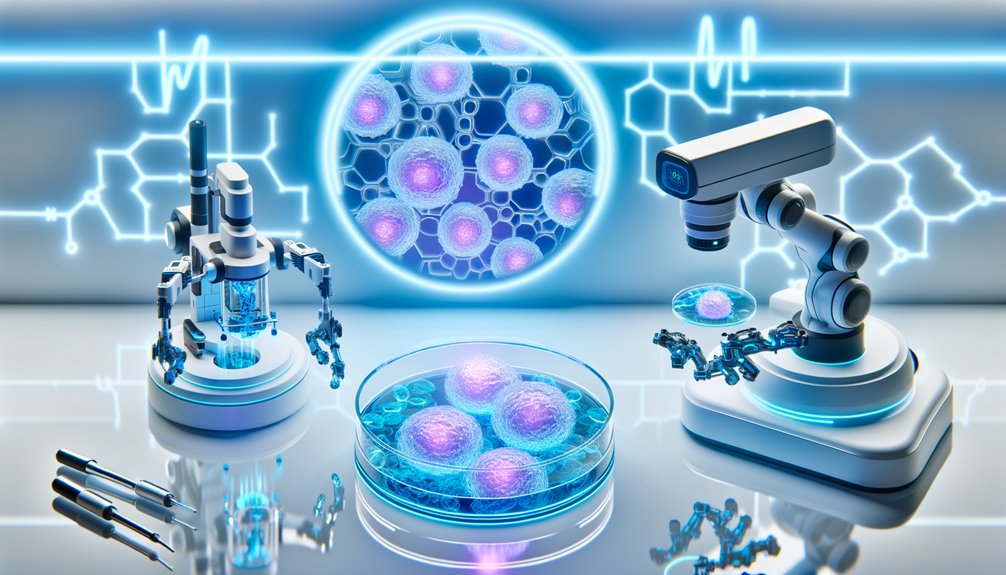In 2025, diabetes research offers exciting breakthroughs that could change lives. Lab-grown insulin-producing cells might soon help those with Type 1 Diabetes regain normal insulin production. Gene editing is evolving to prevent immune rejection, reducing the need for harsh medications. Meanwhile, AI detects early symptoms of diabetes, helping families intervene sooner. These advances spark hope and pave the way for smarter, kinder treatments. Curious about how these innovations take shape? There’s so much more to explore!

In a world where diabetes touches the lives of millions, hope shines brighter than ever as researchers make remarkable strides toward better treatments and potential cures. Advances in cell therapy, particularly Vertex’s zimislecel, are paving the way for a future where lab-grown, insulin-producing beta cells can replace those lost to Type 1 Diabetes (T1D). This innovation carries the promise of restoring normal insulin production, allowing those affected to live healthier lives.
Researchers are also working on gene-edited cells that can dodge immune rejection, offering a glimpse into a world where immunosuppression is a thing of the past. The 85th Scientific Sessions brought together global experts to showcase groundbreaking developments in both type 1 and type 2 diabetes research.
Gene-edited cells hold the potential to eliminate immune rejection, pioneering a future without the need for immunosuppression.
Moreover, immune-modulating therapies are shifting the focus from treatment to prevention. Clinical trials like BANDIT demonstrate the potential of JAK1/2 inhibitors, such as baricitinib, to not only boost insulin production but also protect precious beta cells. This could change the game for many families, offering hope to those at risk of developing T1D.
Artificial intelligence (AI) is another exciting frontier. AI can spot early signs of T1D, sometimes a year before symptoms appear, potentially saving lives by helping prevent complications like diabetic ketoacidosis. Tools like GlyTwin offer personalized advice to help patients manage their blood sugar levels better. This tailored approach means fewer rollercoaster days filled with highs and lows. AI tools outperform current detection methods, paving the way for earlier interventions and better outcomes.
The recognition of glucagon-like peptide-1 (GLP-1) by the 2025 Breakthrough Prize highlights its crucial role in managing blood sugar and appetite. With treatments based on GLP-1 revolutionizing treatment for type 2 diabetes, the hope for better diabetes management continues to grow.
